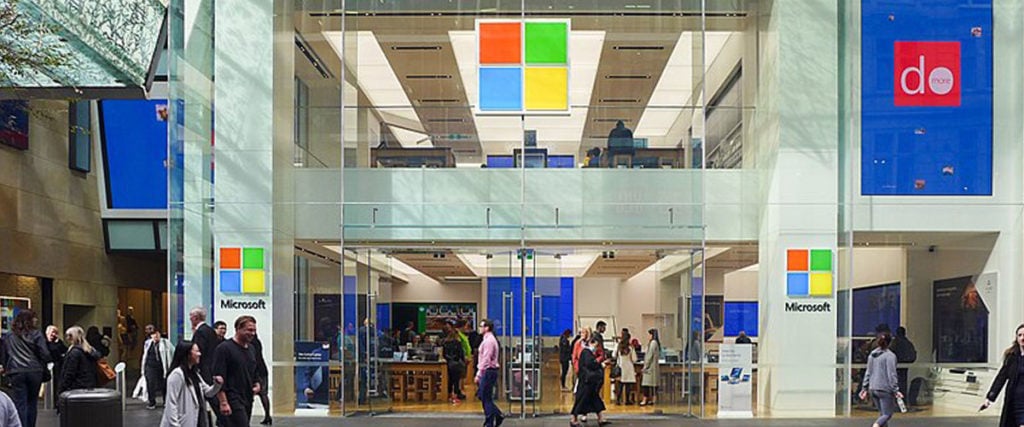Microsoft Corp. announced it will be closing all physical stores on Friday last week in a major strategic shift. The tech giant plans to continue to serve its 1.2 billion monthly customers remotely, shifting its retail team to remote sales, training and support. The move will not involve any layoffs, according to The Verge.
The firm’s shift to digital would also incur a pre-tax charge of USD 450 million, which would amount to USD 0.05 per share, the firm reported, attributing the cost to asset write-offs and impairments.
Flagship centres in London, New York, Sydney and the Redmond Campus will be converted to Microsoft Experience Centres, an indication that Microsoft has shifted its focus to experiential retail – a trend that has long been lauded as the future of retail.
Although the US had previously been heavily dependent on physical retail to drive transactions, COVID-19 lockdowns have severely disrupted consumer habits and accelerated the adoption of digitalised customer pipelines. Microsoft stores have been closed since late March in response to city-wide lockdowns that were implemented to slow COVID-19 transmission.
“We’ve seen two years’ worth of digital transformation in two months. From remote teamwork and learning, to sales and customer service, to critical cloud infrastructure and security – we are working alongside customers every day to help them adapt and stay open for business in a world of remote everything,” Microsoft CEO Satya Nadella commented in the company’s FY20 Q3 earnings report in late April.
Microsoft’s stocks surged to an all-time record high last week, reaching USD 203.60 on Tuesday before falling slightly, closing at USD 196.33 on Friday.
Like many tech companies, Microsoft has undoubtedly thrived in light of the pandemic, earning USD 35 billion in revenue, a 15% increase, and a profit of USD 10.8 billion, last quarter. The firm’s offering, which includes video conferencing software Teams and cloud computing platform Azure, was well suited to what has now been dubbed as the world’s largest work-from-home experiment. “COVID-19 had minimal net impact on the total company revenue,” the company confirmed in its earnings report.
However, even as US states lift lockdowns to stimulate the nation’s economy, fears of a second coronavirus wave have dampened global investor sentiments. Hong Kong’s Hang Seng Index dropped 1%, Japan’s Nikkei was down 2.3% and Shanghai’s CSI slipped 0.71%.
The Trump administration has been accused of being “in denial” of the severe threat that COVID-19 poses to future economic recovery by US Health and Human Services Secretary Alex Azar, according to the Financial Times.
Banner Photo Credit: commons.wikimedia.org
Related Articles
Facebook Loses USD 7.2 Billion as Companies Boycott Ads
Singapore’s 5G Network Will Be Built By Nokia, Ericsson, Not Huawei
Tencent’s Market Cap Reaches USD 614 Billion After Stock Price Rises





